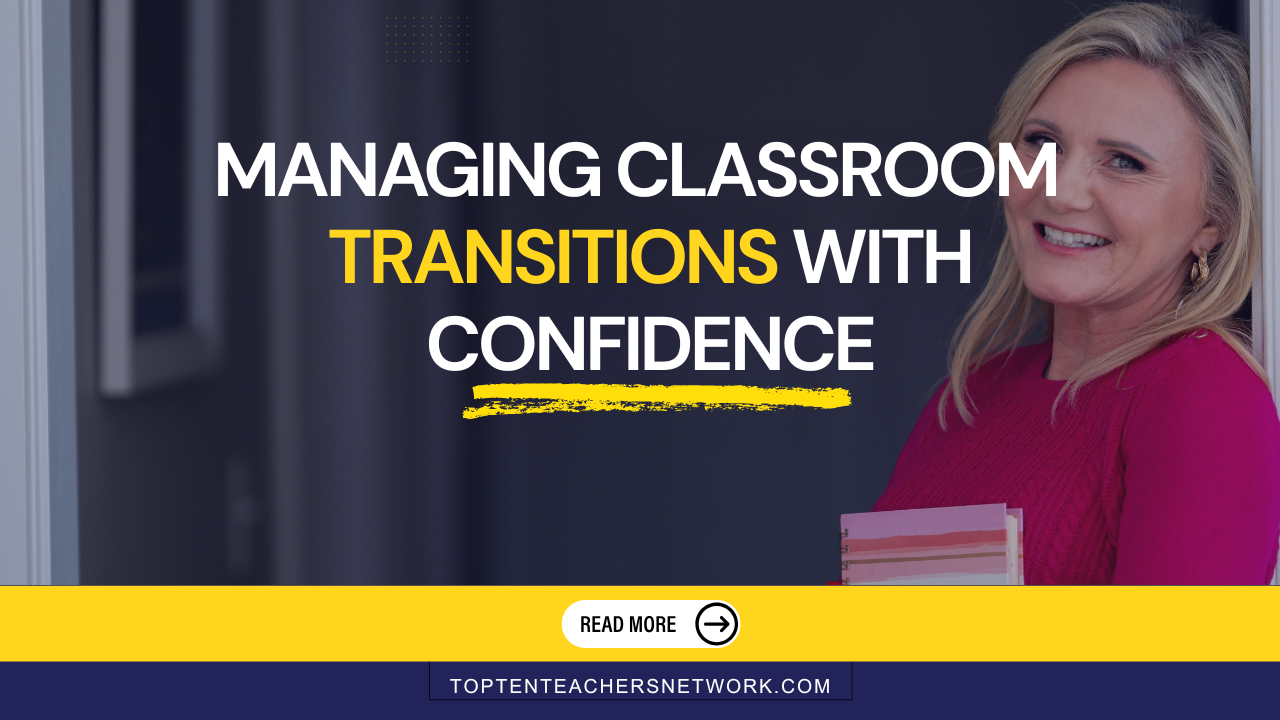Talk Like a Top Ten Teacher: The Power of Intentional Language in the Classroom
Let’s be honest. If your week started out rocky, you’re not alone. Maybe your classroom vibe felt a little off, your reminders were on repeat, and the overall tone was chaotic.
Here’s the truth: even the best teaching strategies fall flat when your language doesn’t support your classroom culture.
So let me ask you—how will you keep up this pace all year?
It might not be your students.
It might be your language.
And that’s exactly where the Talk Like a Top Ten Teacher Toolkit (a practical classroom management toolkit) comes in.
Practice Doesn’t Make Perfect—It Makes Permanent
One of the best things I’ve heard lately is this:
“Practice doesn’t make perfect. It makes permanent.”
As teachers, we are creatures of habit. Without feedback, reflection, and intentional shifts, we default to what’s familiar—even if it’s not working.
That’s why I challenge you: use this toolkit every day for one week.
If you don’t feel a shift by Friday, message me. I’ll hop on a quick call and role-play with you.
Because here’s the truth: your words don’t just manage a classroom. They shape it.
Why Intentional Teacher Talk Is One of the Best Classroom Management Strategies
The way we talk to students directly influences:
-
How they see themselves
-
How they behave
-
What they believe they can achieve
According to a 2024 study in Frontiers in Psychology (Zee & Koomen, 2024), positive teacher-student relationships significantly boost engagement, behavior, and achievement.
Intentional language isn’t fluff—it’s one of the top teaching strategies for real, lasting change.
What Is the Talk Like a Top Ten Teacher Toolkit?
This isn’t just another classroom management tool. It’s a mindset shift built on the 3 Pillars of Success:
-
Student Voice
-
High Expectations
-
Relationships
It helps you:
Build student identity with purpose-driven prompts
Encourage participation with acknowledgment-based language
Set high expectations with powerful teacher talk moves
Create calm, connected learning environments
Try These Two Teacher Talk Strategies This Week
1. Use Inspiring Attention Terms
Address students as “Writers,” “Scientists,” or “Historians.”
Example:
“Writers, I love how focused you all are today. Let’s keep that energy going!”
2. Thank Students for Their Contributions
Acknowledgments validate student voice and build mutual respect.
Example:
“Thanks for sharing that connection, Jordan. That helped us all think deeper!”
Instead of Saying… Try Saying…
| Instead of… | Try Saying… |
|---|---|
| “Good job.” | “Thank you for your thinking, Marie. Do you all agree or disagree?” |
| “Okay, next.” | “I noticed you stuck with that problem and didn’t give up. That’s perseverance.” |
| “Eyes on me!” | “Mathematicians, let’s regroup on the rug.” |
Notice what shifts: your students will rise to the tone and intention you set.
What You Get with the Toolkit
✔ Top Ten Talk Tools: 10 strategies with examples
✔ Why Language Matters: research-based educator guide
✔ Affirmation Cards: 16 phrases to boost identity
✔ Quick-Reference Sheet: color-coded for easy use
✔ Habit Tracker: daily + weekly reflection prompts
Why It Works
When your language reflects high expectations, clarity, and care, students:
-
Feel seen
-
Feel capable
-
Show up differently
You’ll see more engagement, fewer power struggles, and a positive classroom culture built on purpose.
Real Talk, Real Results
You don’t need more worksheets.
You need real tools that actually work.
The Talk Like a Top Ten Teacher Toolkit gives you the language to:
Build trust
Boost engagement
Reduce behavior issues
Create a calm, focused classroom culture
Grab your copy, commit for 1 week, and feel the shift.
More Resources
Check out my full bundle of teacher resources—including the Classroom Launch Toolkit, lesson plan templates, and more—on Teachers Pay Teachers.
Join the Empowered Teacher Newsletter for weekly real talk, teaching tips, classroom management strategies, and tools that work.
Citation:
Zee, M., & Koomen, H. M. Y. (2024). The Role of Teacher-Student Relationships in Supporting Academic and Behavioral Outcomes: A Meta-Analytic Review. Frontiers in Psychology.





